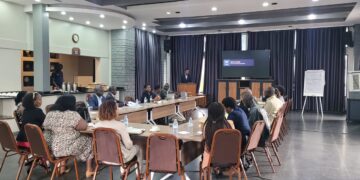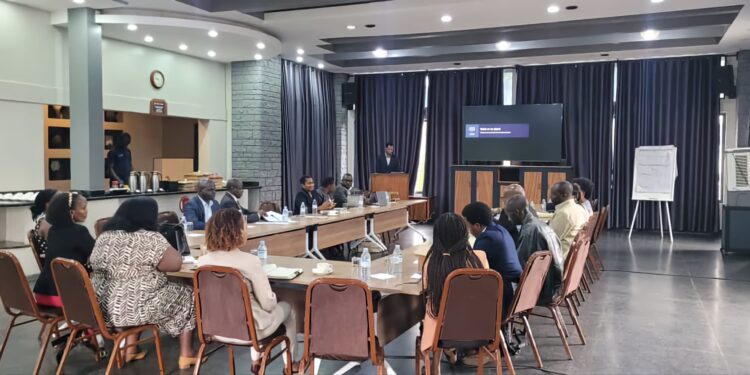The Uganda Tourism Association (UTA) convened a Tourism Working Group (TWG) Breakfast Meeting at Fairway Hotel, Kampala aimed at fostering structured dialogue on priority reforms and strategic partnerships required to revitalize Uganda’s tourism industry.
The meeting was convened as a direct follow-up to the World Bank’s Tourism Private Sector Dialogue held earlier on June 5, which called for strengthened collaboration among industry players, a a unified private sector voice to engage government and development partners.
The World Bank emphasized its readiness to support Uganda’s tourism sector through targeted interventions that align with national development frameworks particularly in improving sector competitiveness, inclusive growth, sustainability, and institutional strengthening.
In response, UTA launched the Tourism Working Group (TWG) during this breakfast meeting.
The TWG is envisioned as a functional platform that will facilitate continuous consultation, coordination, and advocacy on tourism policy and investment issues.
Its formation marks a significant step towards institutionalizing private sector engagement, ensuring that industry concerns are channelled into ongoing national and international development planning processes.
The TWG meeting was chaired by UTA President, Yewagnesh (Yogi) Biriggwa, who reaffirmed the importance of unity, shared responsibility, and structured sector engagement.
Discussions were expertly guided by Prof. Edwin Sabuhoro, UTA’s Technical Advisor, alongside the UTA Secretariat.
During the meeting, stakeholders contributed sector-specific insights and co-developed a shared framework to guide the TWG’s advocacy and partnership agenda.
They reflected on both the World Bank’s diagnostic and grassroots realities, highlighted several persistent bottlenecks limiting the tourism sector’s growth and resilience.
Limited access to affordable financing and investment capital for tourism enterprises, Infrastructure deficits, especially in green energy, water access, ICT, and waste management across key tourism corridors, High operational costs and non-harmonized tax policies that reduce competitiveness, A growing skills gap in hospitality, guiding, and tourism service delivery.
Weak destination marketing and poor visibility in regional and international source markets, Inadequate data and research systems for evidence-based planning and decision-making, Inconsistent enforcement of policies, especially in quality assurance and licensing and Underutilized cultural and heritage tourism assets despite growing demand for experiential travel.
For each challenge, proposed solutions were mapped including mobilizing concessional financing through development partners, advocating for regulatory reforms, strengthening skills development programs and supporting joint destination marketing efforts. These outputs form the initial TWG action plan.
As a newly formed coordination mechanism, the TWG will work closely with the World Bank and other stakeholders to operationalize priority reform areas, facilitate policy dialogue and channel private sector input into the ongoing implementation of Uganda’s Tourism Master Plan and the National Development Plan (NDP IV).
Participants were drawn from executive and technical teams of tourism associations under UTA, including:-
Uganda Hotel Owners’ Association (UHOA), Association of Uganda Tour Operators (AUTO), Buganda Heritage and Tourism Board (BHTB), Hotel General Managers’ Association of Uganda (HOGMAU), National Arts and Cultural Crafts Association of Uganda (NACCAU), Association of Uganda Women in Tourism Trade (AUWOTT), The Uganda Association of Travel Agents (TUGATA), Uganda Safari Guides Association (USAGA) and Uganda Community Tourism Association (UCOTA).











